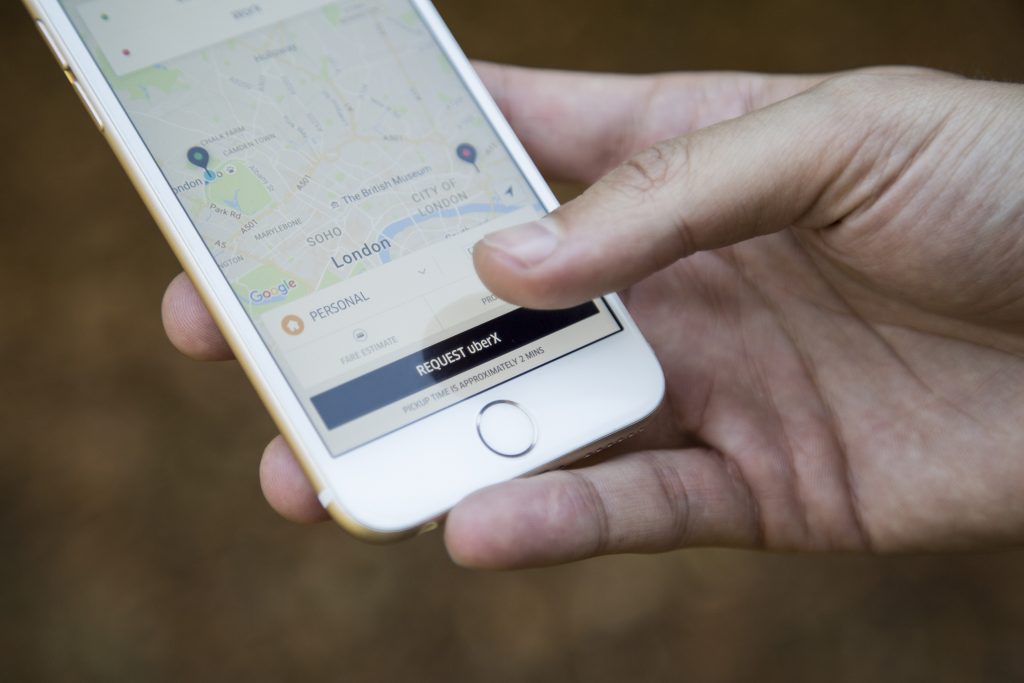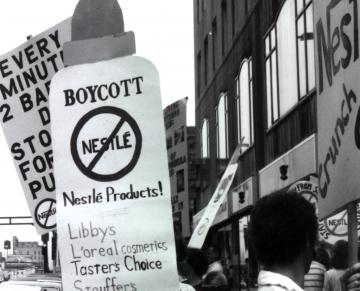
What’s with all the boycotts?
Although Donald Trump is now (apparently) the most powerful man in the world, consumers have been tapping into their own form of power to make their voices heard.
By not buying products from a company which does something you disagree with – or 'boycotting' it – consumers force the company to take notice. The aim is to hurt its profits, which might make it change its behaviour.
And although in the Trump era boycotts seem to be everywhere, it’s nothing new. In 1977, a boycott of Nestlé products was launched after it marketed baby formula in the developing world. Nestle eventually agreed to sweeping reforms as a result and the boycott was seen as a great success.

So what have the boycotts achieved so far?
In response to the leaked tape of Trump talking about grabbing women "by the pussy”, Shannon Coulter, a brand and digital strategist, started the hashtag #GrabYourWallet, which relates to a list on a website of the same name. The list shows which companies are associated with Trump and in what capacity and encourages consumers not to buy from them, and then also lists the ones which have changed their minds.
They’re having some success. Although it didn't directly credit #GrabYourWallet, Nordstrom (a big American department store, like Macy’s) just dropped Ivanka Trump’s clothing line from its stores due to a drop in sales. To date, 13 companies have been dropped from the #GrabYourWallet list.

But it’s Uber that’s been making all the headlines. When Trump took office he set up a group of big business CEOs to help him come up with economic policy, called The Strategic and Policy Forum. Uber CEO, Travis Kalanick, was one of them. This obviously didn’t go down well with the #GrabYourWallet people and Uber was put on the list of companies to avoid.
On top of this, when the huge protests in reaction to the immigration ban were taking place outside JFK Airport in New York, Taxi drivers called a one hour strike in support of the protesters. Uber tweeted that it would not be putting prices up – what it calls its "surge pricing" – as it normally does when there is a high demand for cabs.
Not only was Uber not supporting the strike but it seemed as though it was taking advantage of the situation by undercutting the taxi drivers on price. Uber was hit on twitter with the hashtag #DeleteUber.
Pretty quickly people started doing just that and Lyft (direct competitor to Uber in the US) saw a massive spike in downloads. As if by magic Kalanick announced that he would be leaving Trump’s Strategic and Policy Forum due to the backlash and has been removed from the #GrabYourWallet list. So the boycott strategy seemed to work pretty well.
And what about the pro-Trump consumers?
It's not just anti-Trump consumers using their consumer power to make their political opinions heard. Pepsi CEO Indra Nooyi was reported as having told Trump supporters to “take their business elsewhere.” She denies this but does admit saying that “all” of her staff were crying after the election result. She apologized but the hashtag #boycottpepsi had already started. Nooyi later joined Trump's Strategic and Policy Forum, so is also on the #GrabYourWallet list, confusingly.
Another victim was the GrubHub website. After the election result CEO Matt Maloney wrote an email to all his employees which said, among other things: “While demeaning, insulting and ridiculing minorities, immigrants and the physically/mentally disabled worked for Mr. Trump, I want to be clear that this behavior - and these views, have no place at Grubhub. Had he worked here, many of his comments would have resulted in his immediate termination….If you do not agree with this statement then please reply to this email with your resignation because you have no place here.”
Maloney came back saying he did not mean that Trump voters should resign (although you can see why it sort of sounded like that!) but as a result of the #BoycottGrubhub movement there was a significant drop in GrubHub share prices and a 1.5/5 star app rating. But, it didn’t last long. Shares are back up now and the app has 4.5/5 star rating again.
And then it was Starbucks's turn. Its CEO Howard Schultz announced that the company would be hiring 10,000 refugees in response to Trump’s policy. Some people felt that he should hire unemployed Americans, especially veterans, instead. So what happened? You guessed it: #boycottStarbucks.
Do boycotts like this really make a difference?
Aram Sinnrecih, Professor of communications at the American University in Washington DC, says probably not. He told Market Watch that consumers in 2017 have a short attention span, take how brief the blip in GrubHub shares was, for example. One hashtag one day will be replaced with another the next. A recent study from Northwestern University agrees that these tactics do not significantly hurt sales in the short term.
However, the same report says that damage to reputation can hurt the businesses in the long term. When consumers boycotted Nike in the ‘90s after it was revealed that it had been using child labor, shares were significantly hit. In terms of Trump’s presidency though, it looks unlikely that it will be set off track by these small fluctuations. As for his personal businesses bookings in Trump hotels spiked after his election despite a brief dip during the campaign. All in all, it seems boycotting products for political gain is perhaps more cat and mouse than all out consumer warfare.



